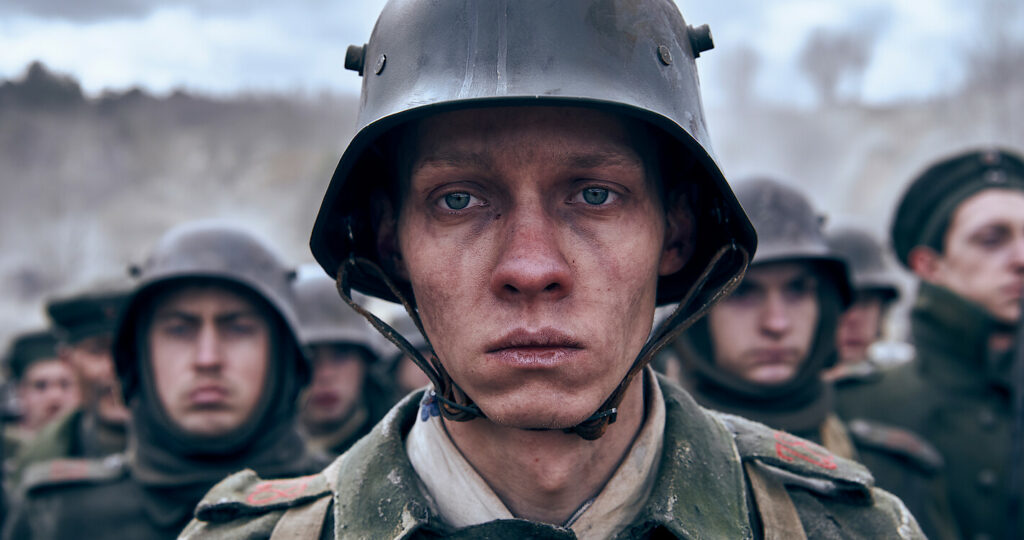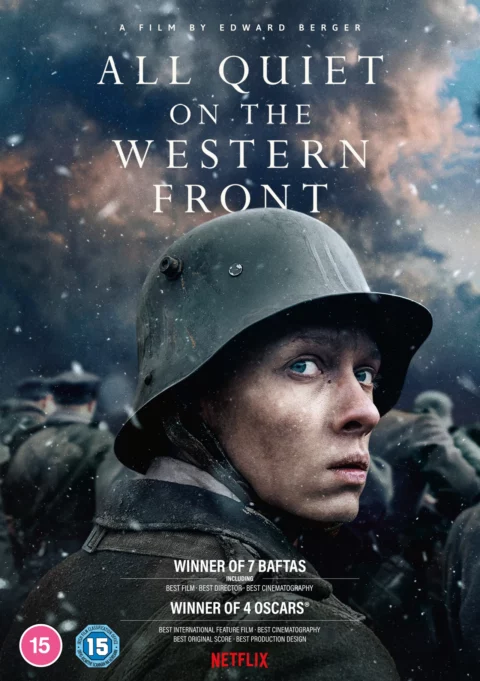Physical Release: 24th April 2023
Studio: Altitude
Genre: War
Edward Berger’s adaptation of All Quiet on the Western Front brings Erich Maria Remarque’s classic novel to life with a poignant and timeless portrayal of the horrors of war. Through meticulous direction and a talented ensemble cast, Berger successfully captures the emotional depth and impact of the source material, delivering a thought-provoking cinematic experience.
We follow the journey of a group of young German soldiers during World War I, exploring their transformation from eager recruits to battle-hardened individuals haunted by the atrocities they witness on the frontlines, with the intimate moments of camaraderie contrasted with the visceral depictions of warfare, immersing the audience in the harrowing reality of war.
The strength of Berger’s direction lies in his ability to create an authentic and immersive atmosphere, the cinematography expertly captures the stark landscapes, the chaos of battle, and the intimate moments of introspection, evoking a palpable sense of tension and unease. The pacing is deliberate, allowing the audience to absorb the emotional weight of each scene while effectively conveying the relentless and unrelenting nature of war. Skillfully conveying the internal struggles faced by the soldiers, the cast capture their vulnerability, and profound loss, the standout performance comes from the film’s lead felix kammerer, whose portrayal of an idealistic german soldier Paul Bäumer showcases the character’s growth and transformation with authenticity and depth.
All Quiet on the Western Front is a sobering reminder of the human cost of war. It delves into the psychological and emotional toll on those directly involved, leaving an indelible mark on the viewer’s conscience. Berger’s direction, coupled with the outstanding performances, offers a poignant and empathetic exploration of the profound impact of war on the human spirit.
Available on DVD, Blu-ray and 4K UHD!


